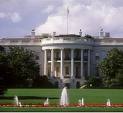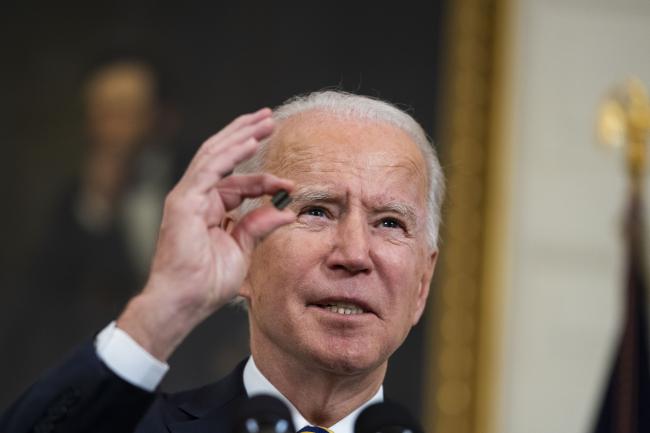How Does the Tea Party Compare with European Far Right Movements?

There is a rich history of far-right political parties in Europe. Long-standing parties such as the French Front National (FN), mostly marginalized since World War II, have enjoyed a resurgence since the 1980’s. Under the very recent leadership of Marine Le Pen, the FN has undergone a rejuvenation of its communication strategy and gained two seats in the National Assembly, the first time that the FN won any seats since the end of the proportional representation system in 1988. There are also many newer far-right parties in Europe, such as the Dutch Party for Freedom (PVV). The PVV, formed in 2006 by Geert Wilders, has become the third most popular party in the Netherlands and was until recently a member of the governing minority coalition.
Far-right movements have not been limited to Europe, however. In the United States, the nascent Tea Party movement has become a powerful political force. Because of the dominance of the two-party system in the US, the Tea “Party” is not an independent political party in the traditional sense. Rather, it generally constitutes the “far right of the Republican coalition,” (Jacobson p. 1). Additionally, the Tea Party movement is gaining strength on both the local and national levels; in the 2010 midterm election, almost half of the Republicans elected to Congress had ties to the Tea Party movement (Jacobson p. 2).
The renewed visibility of these political parties has brought about a great deal of consternation; many believe that these parties are fascist or are otherwise a threat to democracy. Despite these misgivings, even because of them, it is important to understand their ideologies and worldviews. Looking at these ideologies comparatively, especially in light of the more recent rise of the Tea Party movement, is one of the more interesting and helpful ways of examining and understanding them. At first glance then, the Tea Party movement, with its emphasis on laissez-faire capitalism, Christian conservatism, and desire to return to a drastically reduced government which abides by “Constitutional principles”, appears to be far removed from the FN and PVV. Underneath these differences, however, lie similar ideological frameworks and worldviews, at the core of which are populism and nativism.
Nativism: The Politics of Exclusion
One of the most important components in the ideologies of the three parties is the desire to achieve a culturally homogeneous society; alien elements that are not in line with this desired society must be removed. Nativism, as Mudde defines it, is “...an ideology, which holds that states should be inhabited exclusively by members of the native group ('the nation') and that nonnative elements (persons and ideas) are fundamentally threatening to the homogeneous nation-state” (p. 22). As one might surmise, these “nonnative elements” are typically comprised of immigrants and minority groups.
After decades of targeting Jews and Sub-Saharan Africans, Muslim immigrants and Islam more broadly now seem to be the main “alien” targets of the PVV and FN. Islam is seen as being totally incompatible with the “native” culture and is therefore threatening. Islamophobic attitudes are shaped by various theories, either deliberately provocative ones such as Bat Ye'Or's theory of Eurabia, which posits that there is a concerted effort to Islamize Europe, or subtler and more informed ones such as Huntington's Clash of Civilizations. Combined with more common view of immigrants as taking jobs and government benefits from the “natives” and being criminals, these form very powerfully negative attitudes towards Muslim immigrants.
Geert Wilders, in particular, is known for his virulently anti-Islamic views which are at the core of his belief system, as well as the incendiary rhetoric that he uses to convey his message. Indeed, he often refers to Islam as a “totalitarian ideology” which is more comparable with fascism or Communism than with Judaism or Christianity (Wilders 2012a).
Of course, according to this worldview such a profound threat must be dealt with harshly. Among other controversial policies, he calls for a halt to non-Western European immigration, banning the Koran, banning the construction of new mosques, and imposing a “head rag” tax on those that wear the burqa (Wilders p. 37, Vossen p. 105). Similarly, Marine Le Pen calls for a drastic reduction in total immigration, from 200,000 per year to 10,000, as well as a system of “national priority” in which those with French nationality are given preference in hiring and government benefits (Le Pen p.6).
While Islamophobia is not as salient an issue in the US as it is in Europe, the Tea Party movement also supports restrictive immigration measures that would primarily target immigrants of Hispanic origin; these harsh laws are intended to crack down on illegal immigration from the Mexican border. The most famous such law is Arizona Senate Bill 1070. Though parts of it were struck down by the Supreme Court, it gives broad new powers to the police, such as the power to question those they detain about their immigration status.
However, perhaps the most salient aspect of the Tea Party movement's ideology is the concept of returning to Constitutional principles, as the Tea Party perceives them. Indeed, the Constitution is mythologized and held up as the paragon of “native” American values. Specifically, the Tea Party believes that the government has overstepped its bounds beyond what the Constitution allows; therefore, legislation such as “ObamaCare” and other such redistributive programs are not only politically misguided but also unconstitutional. Additionally, the Tea Party emphasizes the power of the states' rights as a mechanism to potentially such unpopular laws; as Skocpol points out, these lines of reasoning are very similar to those used by white, conservative southerners in the Civil War era as well as in the Civil Rights era (p. 50).
Populism: Elevating the People
The second core component of the ideologies of these three parties is populism, which can be defined as “...a thin-centered ideology that considers society to be ultimately separated into two homogeneous and antagonistic groups, 'the pure people' versus 'the corrupt elite,' and which argues that politics should be an expression of the volonté générale (general will) of the people (Mudde p. 23). Populism also demands the disappearance of associations, community structures and such like that act as intermediary powers in a given society.
While there are different conceptions of who comprises the “corrupt elite” due to differences in political contexts, all three parties excoriate the mainstream political parties. Importantly, often little or no distinction is made between the targeted parties; they are all part of the “corrupt elite”. A prominent example of this is the recent in-fighting in the Republican Party. Those that are seen as not being conservative enough are branded as “Republicans in Name Only”, “RINOs”, and have had to face intra-party challenges from those more in line with the Tea Party's values. The success of these candidates has led to the formation of the “Tea Party Caucus” within the Republican Party.
Euroskepticism is a major part of the PVV and FN's populist appeals. Both parties support exiting the eurozone as well as the EU (Wilders p. 16, Le Pen p.15), and have denounced the EU in very harsh terms. Indeed, the title of the PVV's 2012 party platform is called “Their Brussels, Our Netherlands” and features a picture of the EU flag in a trashcan (Wilders p. 16). The main criticisms leveled against the EU are that it robs the member states of their sovereignty, and that due to the Eurozone crisis the more financially well-off member states must bail out irresponsible countries such as Greece.
Economic Policy and the Role of the State
One main area of difference between the Tea Party and the European far-right parties is their positions on economic policy. One of the main policy platforms of the Tea Party is to drastically reduce spending and the size of government in order to reduce the deficit and national debt. Additionally, the Tea Party movement advocates for minimizing the government's role in regulating the economy.
In contrast, the FN and PVV take a more activist view of government in the economy. In particular, they support government policies that would directly benefit citizens, such as maintaining the current retirement age or even, in the FN's case, raising salaries by 200 Euros per month for those that earn below a certain level (Vossen p. 186; Le Pen p. 2).
There are significant differences between the Tea Party movement and far-right European parties such as the Front National and Party for Freedom. The party platforms of the PVV and FN are, to a large extent, based on Islamophobia, Euroskepticism, and distaste with the prevailing political parties. Both of these parties are also in favor of protectionist economic policies and active government intervention on behalf of the “native” citizens. This is in contrast to the Tea Party's vision of a society with a small government and laissez-faire capitalism. While these specific policy positions are quite different from each other, the mentality and worldview that led to these policy preferences are very similar. That is, all three parties view their society as on the cusp of decline due to nonnative forces, whether they are Islam, multiculturalism, globalization, or a socialist government that disregards the Constitution. Corrupt political elites aid these threats by either turning a blind eye to them or even by actively abetting them. In order to restore their desired society (which has, of course, been mythologized and idealized), these nonnative elements, along with the corrupt elites, must be marginalized.
References
Jacobson, G.C. (2011). The President, the Tea Party, and Voting Behavior in 2010: Insights from the Cooperative Congressional Election Study. APSA 2011 Annual Meeting Paper. Available at SSRN: http://ssrn.com/abstract=1901626
Le Pen 2012 Presidential platform: (http://www.frontnational.com/pdf/projet_mlp2012.pdf)
Mudde, C. (2007). Populist Radical Right Parties in Europe. Cambridge, UK ; New York : Cambridge University Press
New York Times, June 25, 2012: (http://topics.nytimes.com/top/reference/timestopics/subjects/i/immigration-and-emigration/arizona-immigration-law-sb-1070/index.html)
PVV party platform: http://www.pvv.nl/images/stories/verkiezingen2012/VerkiezingsProgramma-PVV-2012-final-web.pdf
Skocpol, T., & Williams, V. (2012). The Tea Party and the Remaking of Republican Conservatism. New York: Oxford University Press
Vossen, K. (2011). Classifying Wilders: The Ideological Development of Geert Wilders and His Party for Freedom. Politics, 31(3), 179-189.
Wilders interview (2012a): (http://www.youtube.com/watch?v=9b01KZ82GO8)
Related centers and programs
Discover our other research centers and programsFind out more
Discover all our analyses
RAMSES 2025. Between Powers and Powerlessness
Never before have there been so many powers able to upset the international balance of power, and never before have the dominant powers seemed so powerless to counter the fragmentation of the world.
Kamala Harris's Economic Program
Since receiving the Democratic nomination in the wake of President Joe Biden’s decision to step aside in the 2024 American presidential race, Vice-President Kamala Harris has been striving to define her own policy platform to attract voters in the limited time remaining before the November 5th election. Since the economy is a central issue for American voters, Harris developed several propositions in that area.
IRA: Towards Clean Hydrogen Leadership in the U.S.
Although late in adopting clean hydrogen (H2) and defining a national strategy–a draft was presented by the Department of Energy (DOE) in September 2022–, the United States (US) has strongly reinforced its support to clean hydrogen with the passage of the Inflation Reduction Act (IRA) in August 2022.
Convince and Coerce: U.S. Interference in Technology Exchanges Between its Allies and China
The tough-on-China policy adopted by the Trump and Biden administrations has – and will increasingly have – important consequences for Washington’s allies, both on their infrastructure choices (5G, submarine cables...) and on their technological exchanges with China.












